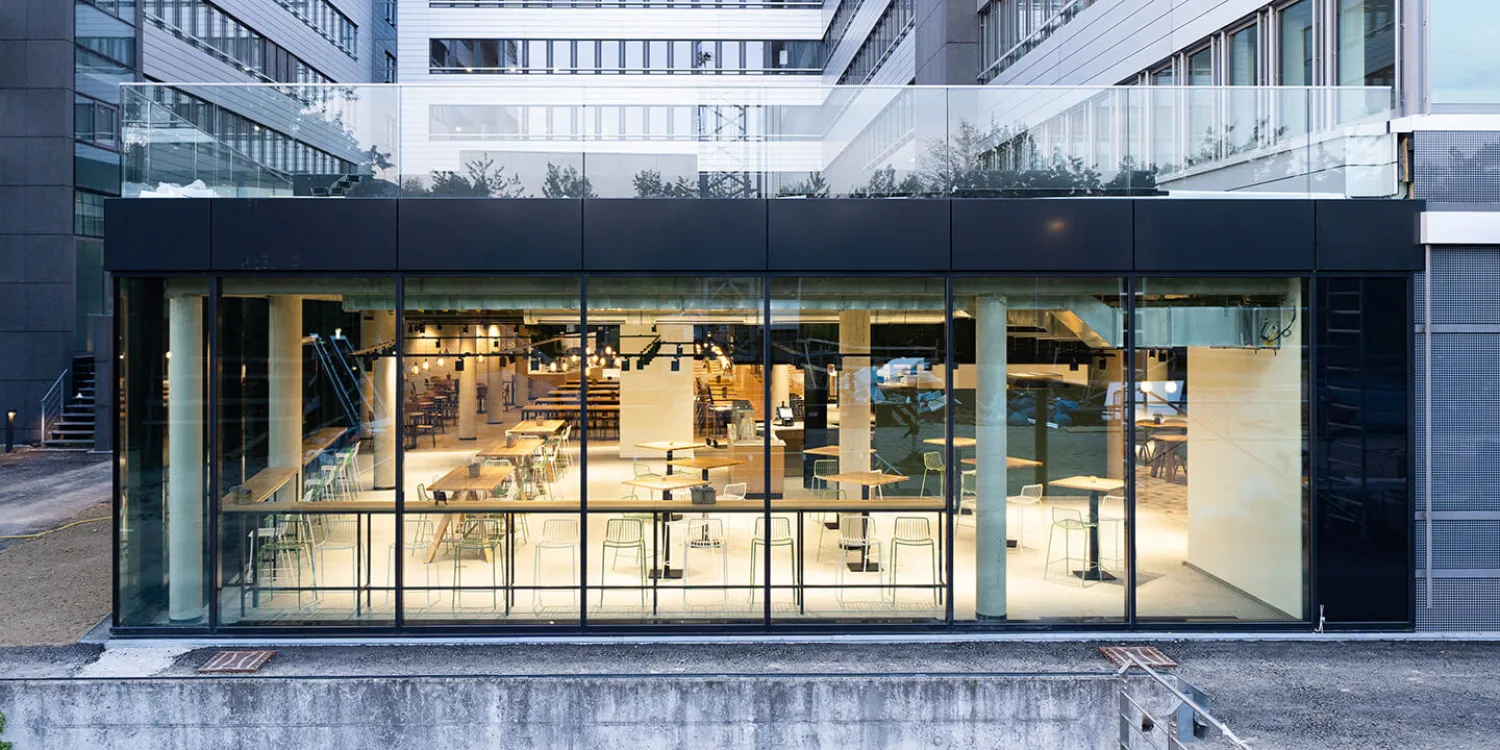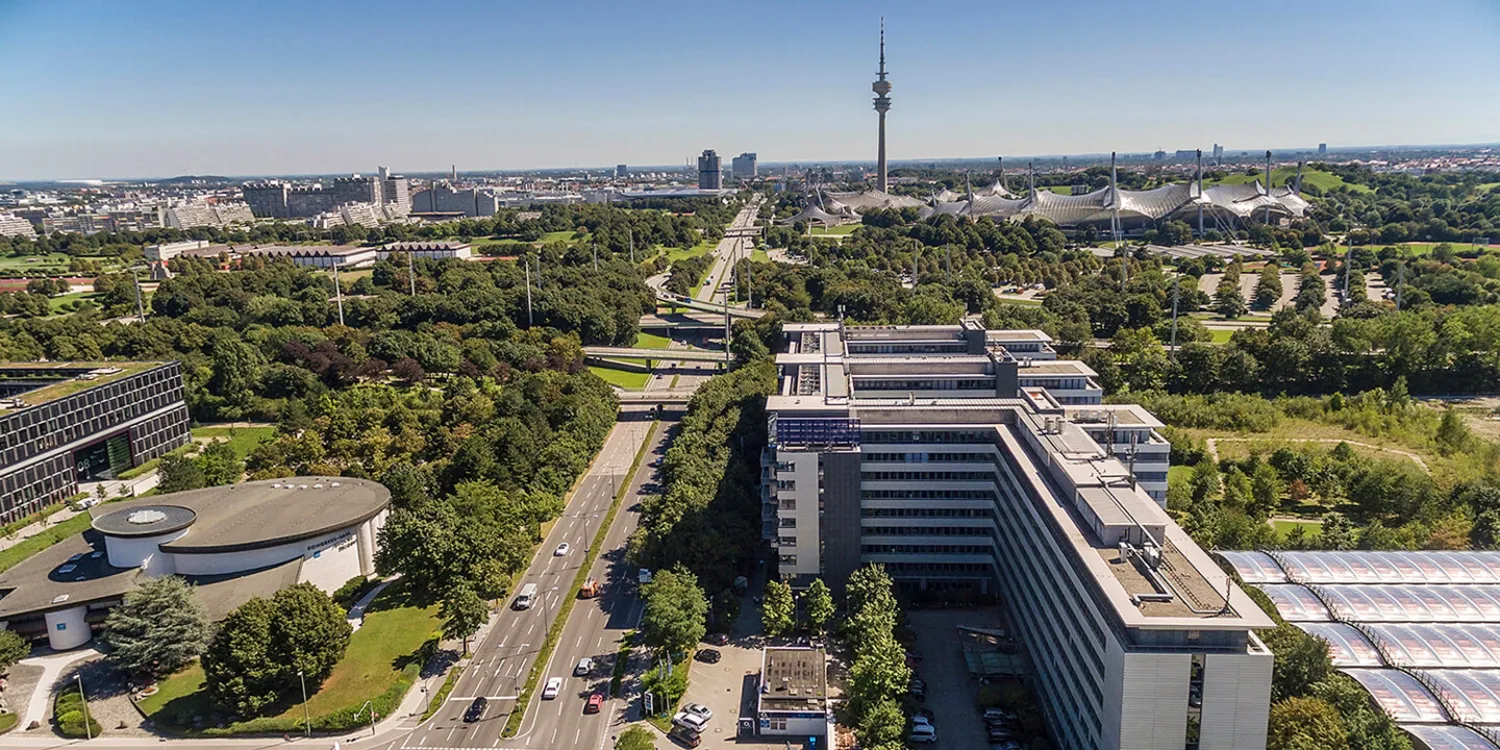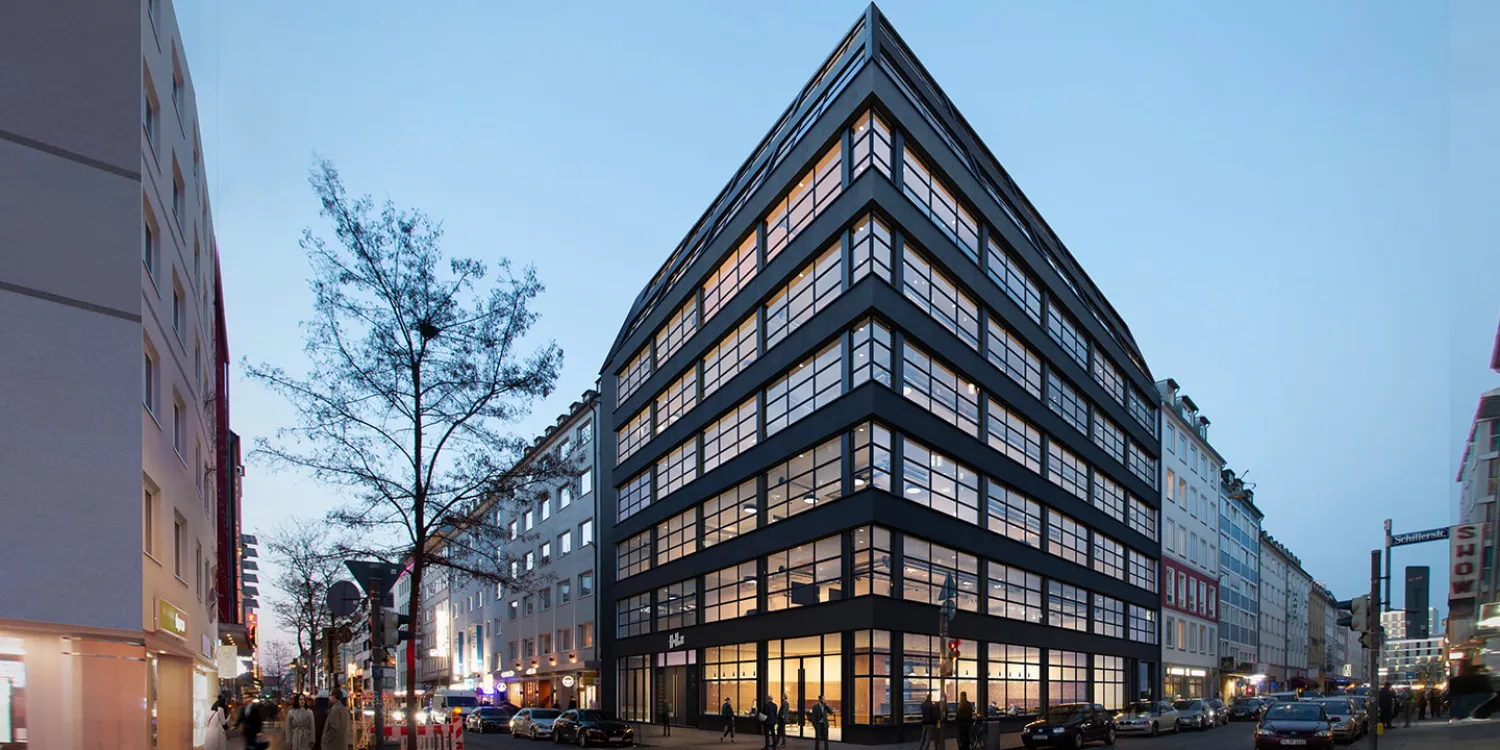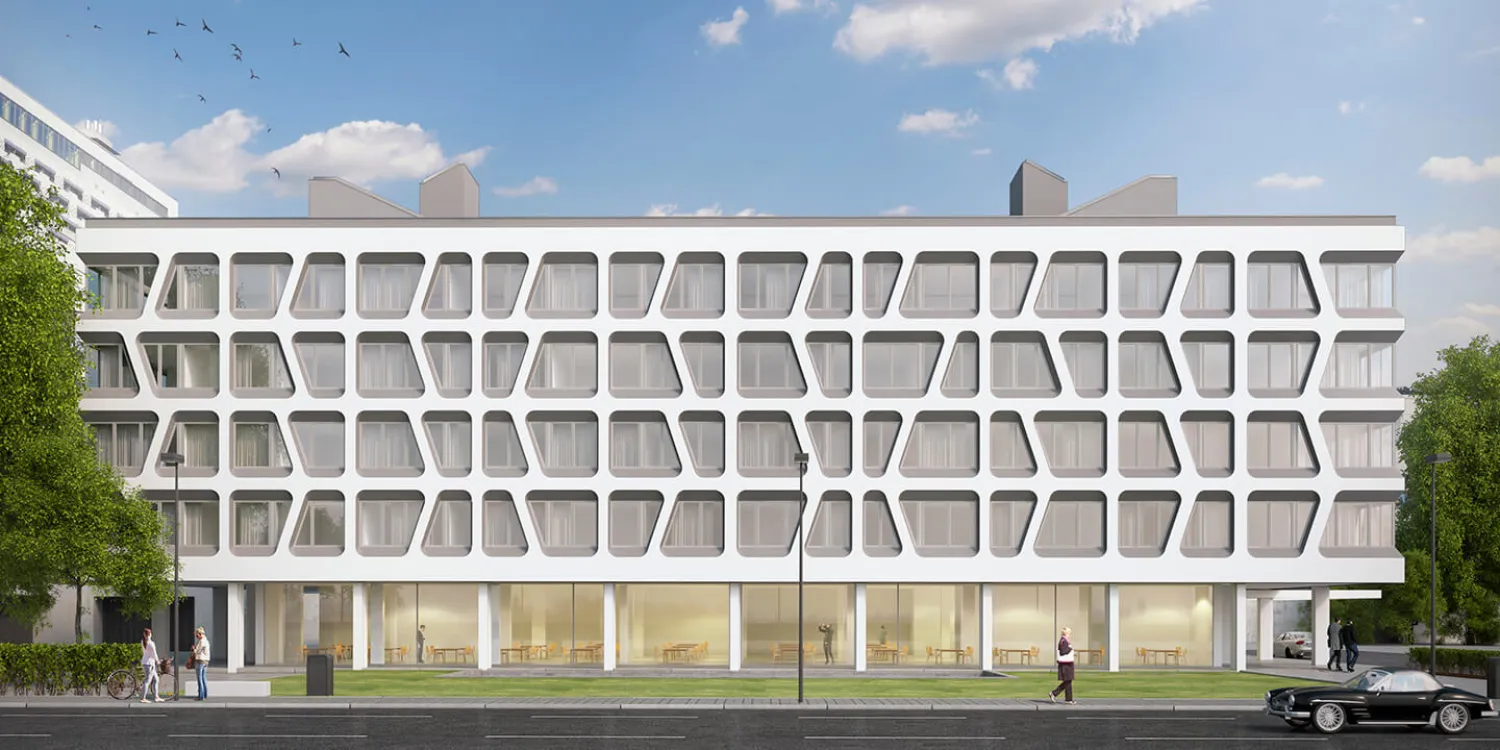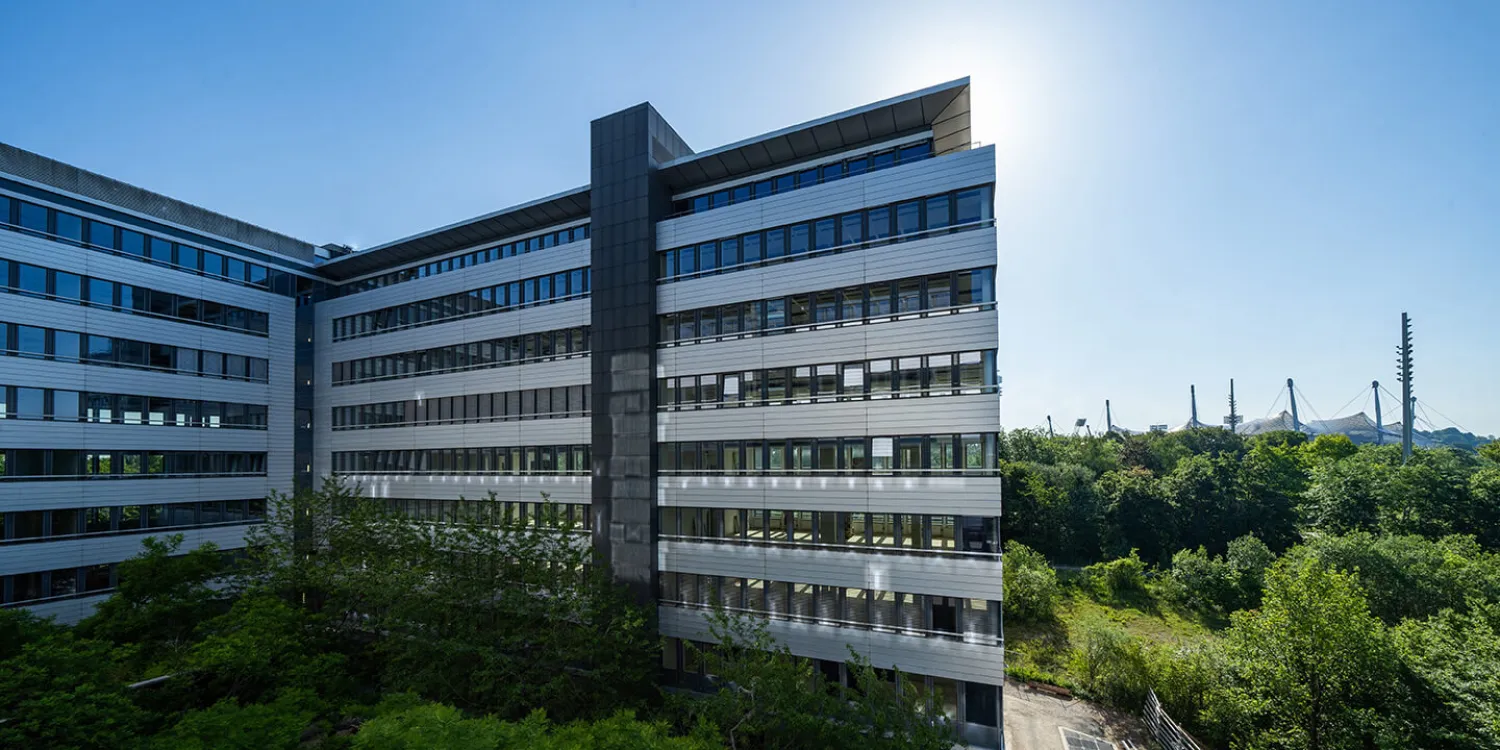Old buildings, new opportunity: Developers often choose demolition for the wrong reasons
CSMM is advocating for the renovation of existing building stock
Studies show developers often make hasty, uninformed decisions about demolition
We need to educate stakeholders on the real value of existing buildings
Munich, 9 February 2021. Following the recent demolition of a 25-year-old office block in Munich’s city centre, the architects and consultants at CSMM are calling for developers to radically rethink their strategy and prioritise the more resource-efficient retrofitting of existing building stock. Timo Brehme, Managing Partner at CSMM: “All too often, today’s property developers choose demolition and new construction over more environmentally sound solutions that preserve existing buildings – despite the massive potential retrofitting offers to save resources and protect the environment.” CSMM Managing Partner Reiner Nowak adds: “We need to raise awareness about issues like construction law, fire protection and economic viability to help asset owners and property developers make better, more sustainable choice between demolition and renovation.”
In addition to construction law and building regulations, developers often make hasty decisions in favour of demolition and new construction to save money, even though there may be no evidence that the new build makes economic sense. Timo Brehme points to a recent survey by Architects for Future to prove his point: several of the architects interviewed for the survey cite a lack of expertise on the part of developers (24 per cent) and specialist engineers (13 per cent). “Overall, we have found that developers often choose demolition for all the wrong reasons, whether it is a flawed assessment of the renovation option or the overwhelming complexity of building regulations and grant schemes,” Brehme states. “We want developers and planners to have access to better information about the true value of existing properties as well as about costs, the building fabric itself and the potential hidden in our building stock. This would help us find a better response to today’s challenges – raising awareness is key.”
The non-profit organisation Architects for Future draws similar conclusions, calling for solutions that significantly increase the rate of renovation. These architects-activists believe we need to educate stakeholders about the real value of the building stock and its potential to reduce overall environmental impact. This message is targeted not only towards developers, building authorities and property investors, but also to society as a whole. 21 per cent of the survey respondents say they would like to see a “renovation ordinance” that would require developers by law to retrofit existing buildings. Architect Reiner Nowak: “We need to address these obstacles head on and invest the effort needed to achieve our carbon-neutral future.”
There is no question that the building industry’s CO2 emission and energy consumption statistics are alarming. In Germany, roughly 30 per cent of direct and indirect CO2 emissions, almost 40 per cent of the energy consumed and as much as 60 per cent of the waste generated can be traced back to the building sector.
If Germany wants to meet the Paris climate targets and keep global warming below 1.5 degrees Celsius, it is vital to get to carbon neutral by 2035. A study conducted by Germany’s Federal Environment Agency confirms that achieving carbon neutrality by 2035 is an essential goal for Germany’s entire building stock – a goal that, according to Nowak, is extremely challenging for the industry in technological as well as economic terms, but one that is also fundamentally within reach. In addition to improving the energy efficiency of our buildings, there is massive potential to reduce environmental impact by prioritising the renovation and retrofitting of existing properties. Nowak: “If we want to play an active role in achieving our carbon-neutral future, we have no choice but to consider retrofitting the existing building stock. That is why we believe every future demolition should be subject to intense scrutiny.” With forward-looking renovation projects such as Arabella Park, the FRITZ office complex and the Olympia Business Center in Munich, CSMM is showing the industry the way forward.
Media contact
SCRIVO Public Relations
Elvirastrasse 4, Rgb.
80636 Munich
Contact: Kai Oppel / Katja Kraus
Tel: +49 (0)89 45 23 508-13
Fax: +49 (0)89 45 23 508-20
E-Mail: katja.kraus@scrivo-pr.de
Web: www.scrivo-pr.de
CSMM contact
CSMM – architecture matters
Werk 3, Atelierstrasse 14
81671 Munich
Contact: Nina Eisenbrand
Tel.: +49 (0)89 960 15 99-45
Fax: +49 (0)89 960 15 99-99
marketing@cs-mm.com
www.cs-mm.com
Overall, we have found that developers often choose demolition for all the wrong reasons, whether it is a flawed assessment of the renovation option or the overwhelming complexity of building regulations and grant schemes.
Timo Brehme, Managing Partner CSMM – architecture matters
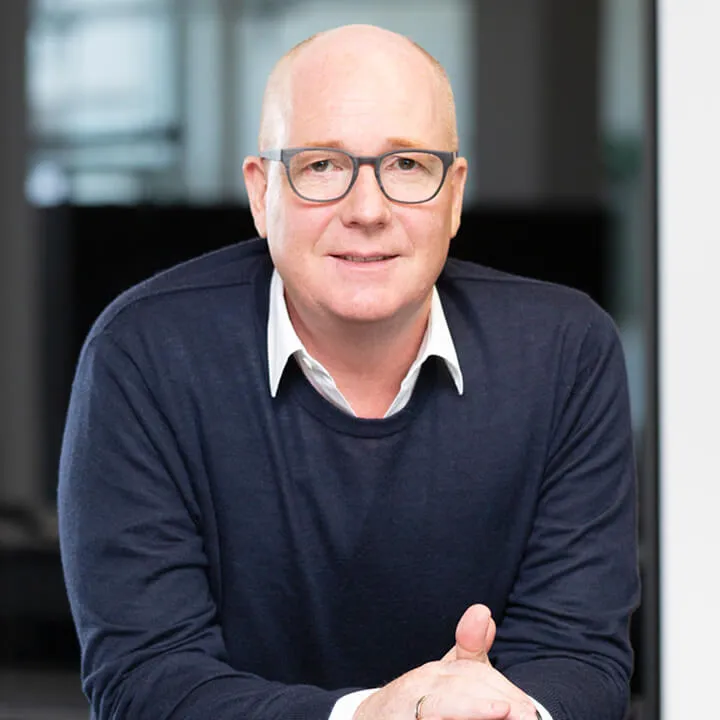

We need to raise awareness about issues like construction law, fire protection and economic viability to help asset owners and property developers make better, more sustainable choice between demolition and renovation.
Reiner Nowak, Managing Partner CSMM – architecture matters
